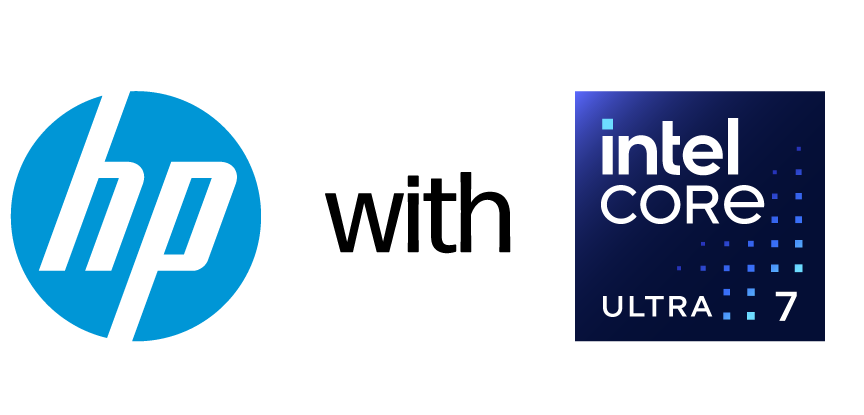
This article is sponsored by HP.
Everyone grab a shovel, the AI gold rush is upon us.
If you haven’t been paying attention, every big tech company right now is scurrying to jump on board the AI-hype train, announcing wide varieties of AI features and integrations on new hardware and software. So much so, it’s difficult to know which ones are actually good, or bloatware renamed to capitalise on the hype.
We asked Gizmodo AU’s very own tech editor Athina Mallis to explain what tech features she believes are great and live up to the hype.
A Smarter Smart Assistant
Smart Assistants have been around for a while, with Siri and Alexa being the most popular examples. But now thanks to new language models, companies are investing in building newer and smarter AI assistants to provide more support.
“With every tech company on a mission to release AI products, one of my favourite updates of late has been the smarter AI assistants. Gone are the days of an AI assistant that can’t understand you or put in the right timer. In fact, AI assistants know what you want before you even ask, and this is what they should be doing in the year 2024.”
Automatic transcribing
If you’ve ever wanted closed captions in real life, automatic transcribing might just be the thing. Many know the struggles of trying to race through transcribing a uni lecture or a business meeting, inducing carpal tunnel in their wrists trying to keep up. But now with automatic transcribing, you’re able to quickly get composedout transcription of interviews and lectures.
“As an editor, I’m constantly interviewing people whether it be on the phone or in person, and the saving grace of these interviews is automatic transcription. I used to spend hours banging out transcriptions but AI tools have saved me the hassle of transcription, one of the more tedious parts of my job. I can look at the transcript immediately and pop the text into my story with minimal editing.”
“This isn’t just great for journos, but for other professionals, whether you are taking minutes or having an important meeting with a client, automatic transcription is a time saver.”
Message and Email Summaries
No one likes having to navigate through group chats to find the address of a party or the date for a project. Our inboxes are most likely cluttered, and it can take a bunch of time to scour the archives of our chats like an old scholar in a dusty library. A new AI feature announced recently is AI summaries, which offer a summarised explainer for emails in your inbox without showing the topline words.
“We’ve all been in a group message or chain email where plans were made but they are buried somewhere deep in the thread. AI summaries make our lives that little bit simpler by giving us the details of the party or the travel plans, without us having to dig around in convoluted emails and chats.”
Background noise editing
When Photoshop came out with its content fill-aware software, it changed the game for photo editing for good. The downside was that you’d have to boot up the software to simply remove a random object in the background. This can make for a tedious exercise of taking the photo, importing the photo, making the changes, and then exporting the photo with varying degrees of waiting in between. New AI software should help streamline this process massively.
“I have so many good photos on my phone that have been ruined by a bad background, from other people to garbage bins, it ruins a good selfie or family picture. A number of tech companies have brought out background noise editing on photos to remove these blights from our beloved images. A quick press of a button and it looks like my family and I are on a secluded beach that doesn’t have bins.”
If you’re keen on grabbing a machine that’s equipped to handle the future of AI tech, it’s worth checking out HP’s new line of laptops.
The new laptops take advantage of Intel’s new Core Ultra processors. These new processors have been said to offer a 25 per cent reduction in power consumption compared to previous Intel chipsets and offer an improvement in multi-threading performance when compared to competing laptop processors. To cut down the jargon, computer life lasts longer, and software runs faster and more stable.
These CPUs also come with a neural processing unit (NPU), which offers low-power AI acceleration for CPU/GPU offloading. Meaning they’re capable of performing AI-powered tasks like background blurring, eye tracking and picture framing. The NPU also allows AI models like Stable Diffusion to run more efficiently.
With this hardware in mind, these laptops come with pre-installed AI-powered software. For example, HP’s Elitebook laptop model comes with HP Wolf Security for Business which safeguards your device with AI-driven security features that adapt and learn. The laptop also comes with AI-enhanced collaboration tools, like dynamic voice levelling and noise reduction, to prevent background noise from affecting your business calls.
For HP’s OMEN gaming laptop range, these new devices benefit from the latest AI core processors to help improve framerate performance and loading times. They also come installed with OMEN Tempest Cooling GO, which can detect if the laptop is entering a “danger zone” level of heat, and smartly accommodates power to cool the computer.
New AI software is announced every day, with some proving to be great tools to help streamline tasks and add some neat quality-of-life solutions to your day-to-day. Or in the case of AI-powered hardware, boosting your computer performance immensely within a single generation. It’s tough to tell what the future of AI will be, but it’s worth keeping an (optimistically cautious) eye on it.
Image Credit: Athina Mallis
>>> Read full article>>>
Copyright for syndicated content belongs to the linked Source : Gizmodo (AU) – https://gizmodo.com.au/2024/06/a-tech-editor-on-what-ai-features-will-actually-be-good/
